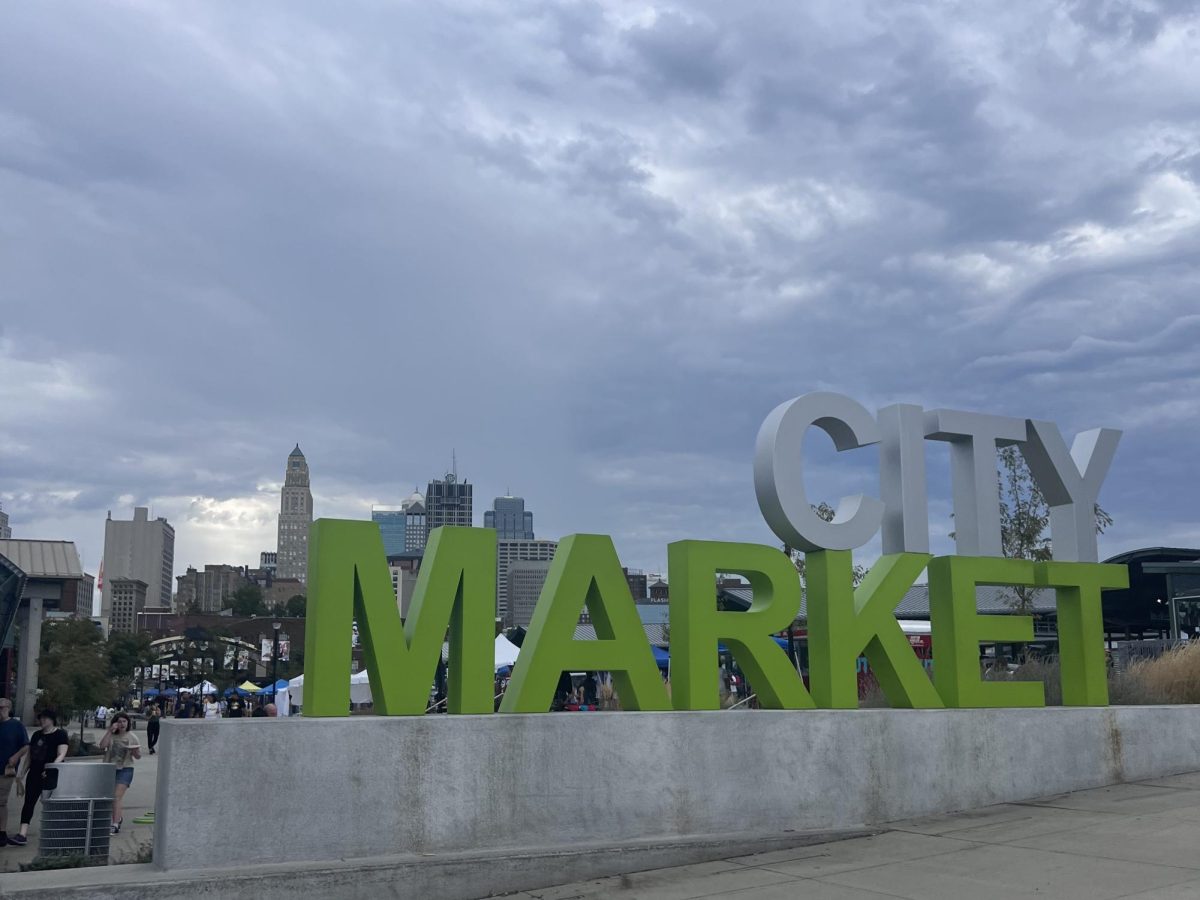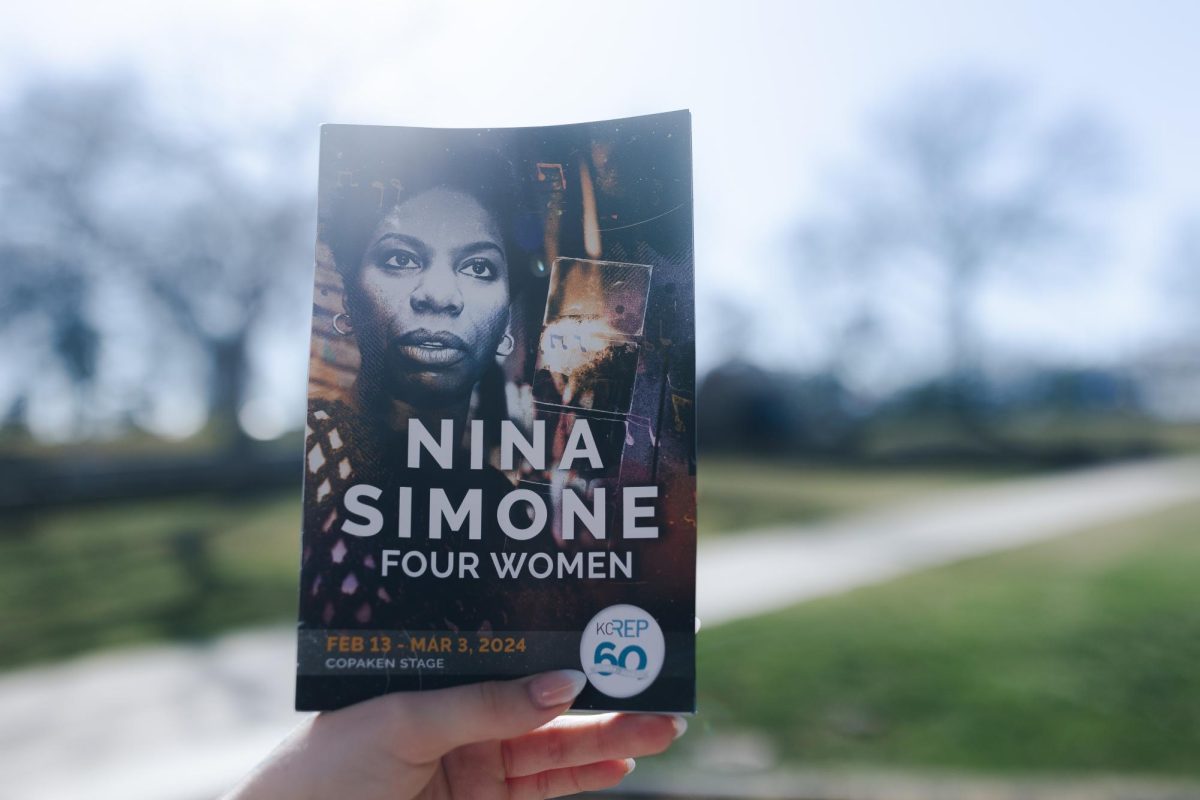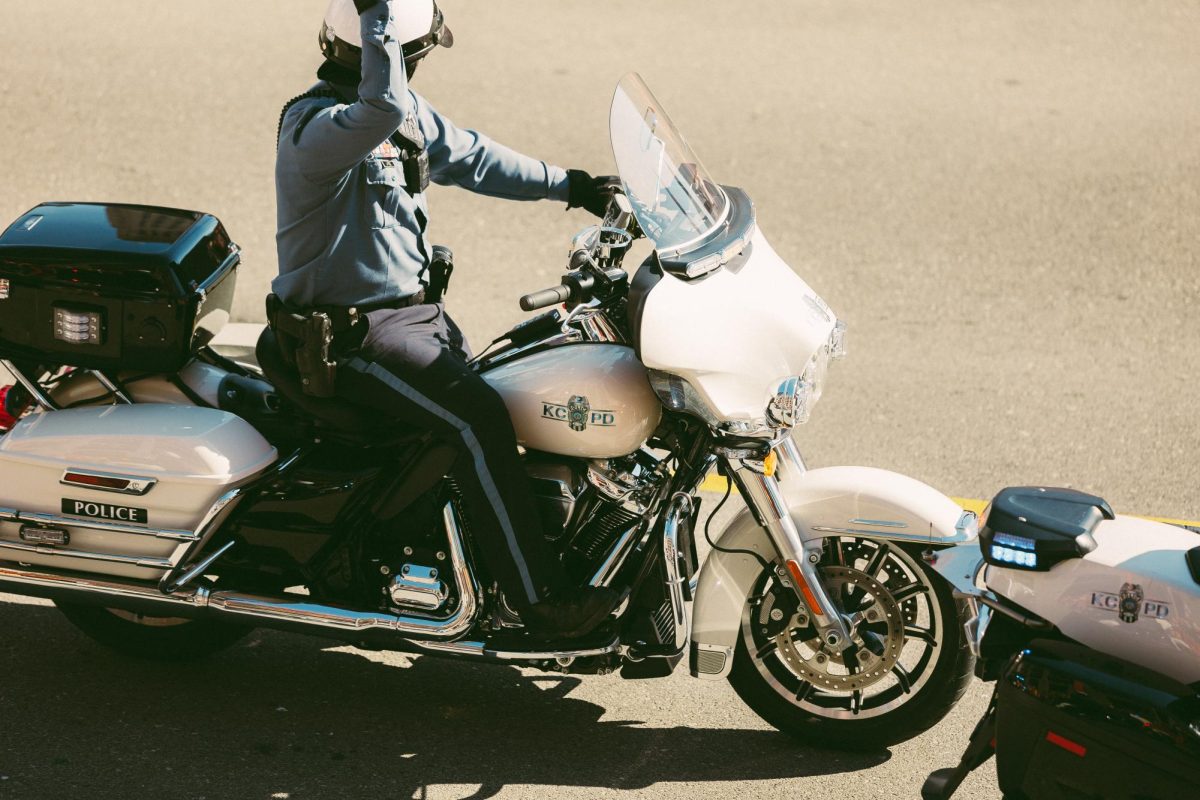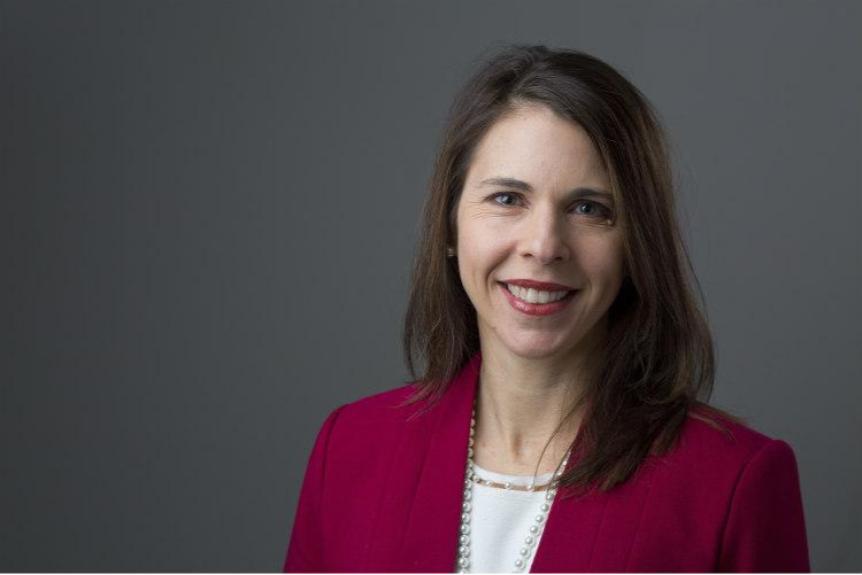Anticipation for a full-capacity fall semester has been building since last spring. Chancellor Mauli Agrawal told Roo News in April that, barring a drastic shift in the course of the pandemic, students would return to in-person classes. Despite the recent uptick in COVID-19 cases due to the delta variant this summer, UMKC is prepared for what resembles previous, pre-COVID semesters.
As semester begins, Roo News spoke with provost Jennifer Lundgren, UMKC’s chief academic officer, about the pandemic, enrollment and the future of UMKC.
Q: What was the decision process behind returning to in-person classes?
A: I think one of the things to remind everyone is that we were in person all last year. We were about one-third face-to-face and hybrid classes, and two-thirds online classes. It was different because people were masked and socially distanced, and from what I understand, even if a class was face-to-face, classes that started with 40 students had maybe four or five that were actually attending by the end of the semester.
The decision really was about whether we can come back at full capacity in the classroom. When you are planning a schedule, there is a lot of work that goes into assigning instructors and assigning classrooms. The departments need to submit those schedules months in advance, sometimes six months or more in advance.
Starting in December, we told all of the deans and department chairs to submit schedules that look more like fall 2019, and that we’re going to start out hoping, assuming, that things will look more normal and that the CDC will come out with guidance that says we can get back to where we were.
Editorial Note: Masks will be required indoors at UMKC regardless of vaccination status until Sept. 15, when the policy will be reevaluated. There is no social distancing policy implemented at this time.
Q: What percentage of classes are online this semester?
A: For this semester approximately two-thirds of our classes are face-to-face or hybrid and one-third are online. We wanted to get back to the larger percentage of face-to-face classes that we had in fall 2019 (80% in person, 20% online), but we also wanted to give departments some wiggle room because of what we were hearing from students, which was that some of those programs, especially the graduate programs where people are working full time, they preferred online.
Q: What happens if a student or faculty member tests positive for COVID-19?
A: We still have the same COVID-19 protocol that we did last year. Whether you’re a student or employee, or you’re on or off campus, you’re supposed to call in within four hours of receiving a positive test and we have a protocol where we do contact tracing.
If you live in the residence halls, we have rooms reserved for isolation and quarantine, so we’re keeping that in place this year and will continue to follow the most up-to-date CDC guidance for how long they need to stay isolated.
Q: Will there be changes made to attendance policies this year?
A: Because we are face-to-face and because the vaccine is available, we will be going back to our old attendance policy. There is an attendance policy in the catalog and essentially it’s up to faculty to determine what their attendance policy will be in their classroom, but an overall expectation that students are attending classes.
If a student has an excused absence then the instructor has to help them get access to the material and make up that work. If someone tests positive for COVID-19 it would be treated like any other illness, and they would have some sort of note from their physician, or wherever they got their test, that just says that they need to be out of the classroom.
Q: Chancellor Agrawal alluded to the possibility of requiring vaccinations in the residence halls last April. Will there be mandatory vaccinations for student housing for the 2021-22 school year?
A: No. They are strongly encouraged.
Editorial Note: According to a letter UMKC released on Aug. 10, vaccinations will be required for faculty, staff, and students who work in clinical settings and have direct contact with patients as part of their UMKC work or training. Students and employees must meet this requirement by Oct. 1.
Q: What is enrollment currently and how does it compare to last year or pre-pandemic enrollment?
A: Enrollment changes every week, so by the time I give you this information and your story prints it will be different. We are overall down about 5% for this year, but here’s why it’s interesting. For first-time college students, we’re up about 10%. It was an amazing year in terms of recruiting new students and getting people excited about UMKC. That’s a huge accomplishment. We’re super excited about having more incoming freshmen.
Where we have seen decreases in enrollment, at about the same rate, is in returning undergraduates. We have done a lot of personal outreach to anyone who was enrolled in the fall and didn’t come back in the spring or enrolled in the spring and has not yet enrolled in the fall. We had a lot of faculty and staff volunteers that were assigned students to reach out to to help them problem-solve.
What we are hearing, both through that calling campaign and also through advising is one of the number one reasons is just Zoom fatigue. My hypothesis is either people are Zoom fatigued, which has generalized to college class fatigued, and they just need some time off, or it’s Zoom-fatigue and they are waiting until it gets closer to the fall to just be sure that classes are really going to be in person. I hope everyone realizes unless the CDC changes something drastic, we’re going to be face-to-face and it’s going to look a lot more normal.
Q: Did COVID-19 impact graduation rates?
A: When you look at our actual graduation in fall and spring, it’s about 22% that graduated in fall of 2019 [and] spring of ‘20, and about 22% of our student body that graduated in fall of 21 [and] spring of 21. So there hasn’t been a change in the number of students graduating.
Q: How has tuition cost changed this year compared to 2020-21 or pre-pandemic rates?
A: The curators have approved an increase of 4% in undergraduate tuition. The previous year there was an increase of 2.3% for undergraduate tuition only. The reason that I’m only giving you the undergraduate number is that we do have some different tuition rates for the professional programs that are largely graduate.
There was a law in Missouri that the state legislature recently changed, which previously put a cap on how much universities could increase tuition, so that was largely what was limiting those increases.
Q: When we spoke with Chancellor Agrawal last spring, he mentioned that moving online increased operating costs. Can you elaborate on that?
A: Part of it is, in order to effectively teach online, the university’s technology costs increase. A very specific example is when we were largely online, we needed proctoring tools that very few departments used in the past. Historically, you would have had some of the professional programs using those proctoring tools for very specific classes. Well now you’ve got half of the campus [using them].
There are also increased costs with hardware in the classrooms. It’s one thing to have your class and then on the little computer up front, open up Zoom. But that’s not effective, because then you’ve got the instructor that can interact with the students on Zoom but the rest of the class can’t. If you’re going to have a true hybrid experience, or “high-flex” experience, you have to invest in microphones throughout the room and television screens throughout the room.
We’ve heard from some students that they do want more flexibility and we’ve heard from some of the departments that they think some of their programs are better suited for online or to have a face-to-face track and an online track. One of the ways to accomplish that is to teach both modalities at the same time, even when we come out of COVID-19. That’s just one example. There’s hardware costs, software costs, and additional licensing costs, just on the technology side.
If I had to estimate, in a normal semester online instruction probably takes about 25% more time. In a COVID-19 semester, I would say it takes at least 50% more time. So, it’s a cost. It’s not a hard dollar cost, but it’s a time cost.
Q: What are the three biggest challenges that UMKC faces, and how do you plan to address those?
A: Ultimately it’s resources. UMKC is a public urban-research institution. We’re a public university, meaning that we are state funded in part and that we don’t have the same level of private support that you would expect from private schools, and we’re an urban research institution. That means we have a community engagement mission, and compared to other schools, for example, some of the flagship schools, we have a larger portion of students that are first generation, Pell-eligible, and from historically underrepresented groups in higher education. What that means is in order for us to achieve the same level of student retention and graduation success, we oftentimes have to implement really intense and purposeful student support.
We have cut administrative costs. We had to do it because of the pandemic and we made the choice to keep those costs low this year, because we are investing in a centralized advising model. We are hoping it will help with continuity, so if a student comes in and they aren’t quite sure what they want to major in, it’s just going to be a handoff to someone who’s part of the same advising system and it will be a lot easier to pick up. They are doing a lot of professional development so we can enhance the advising experience for students.
We’re hiring a director of career services and a director of career preparedness. We’ve got a plan in place to grow career services over the next few years. We have also hired a financial wellness coordinator. Our institution is committed to serving students that may not have the same financial resources as students at other types of institutions, or because they are first generation. I’ll use myself as an example. Neither of my parents graduated from college. I drove myself to college, and then I showed up and had to figure everything out. I didn’t have parents that understood or took my bills from me and paid them. That’s what we’re trying to invest in: support systems for students to remove barriers.













